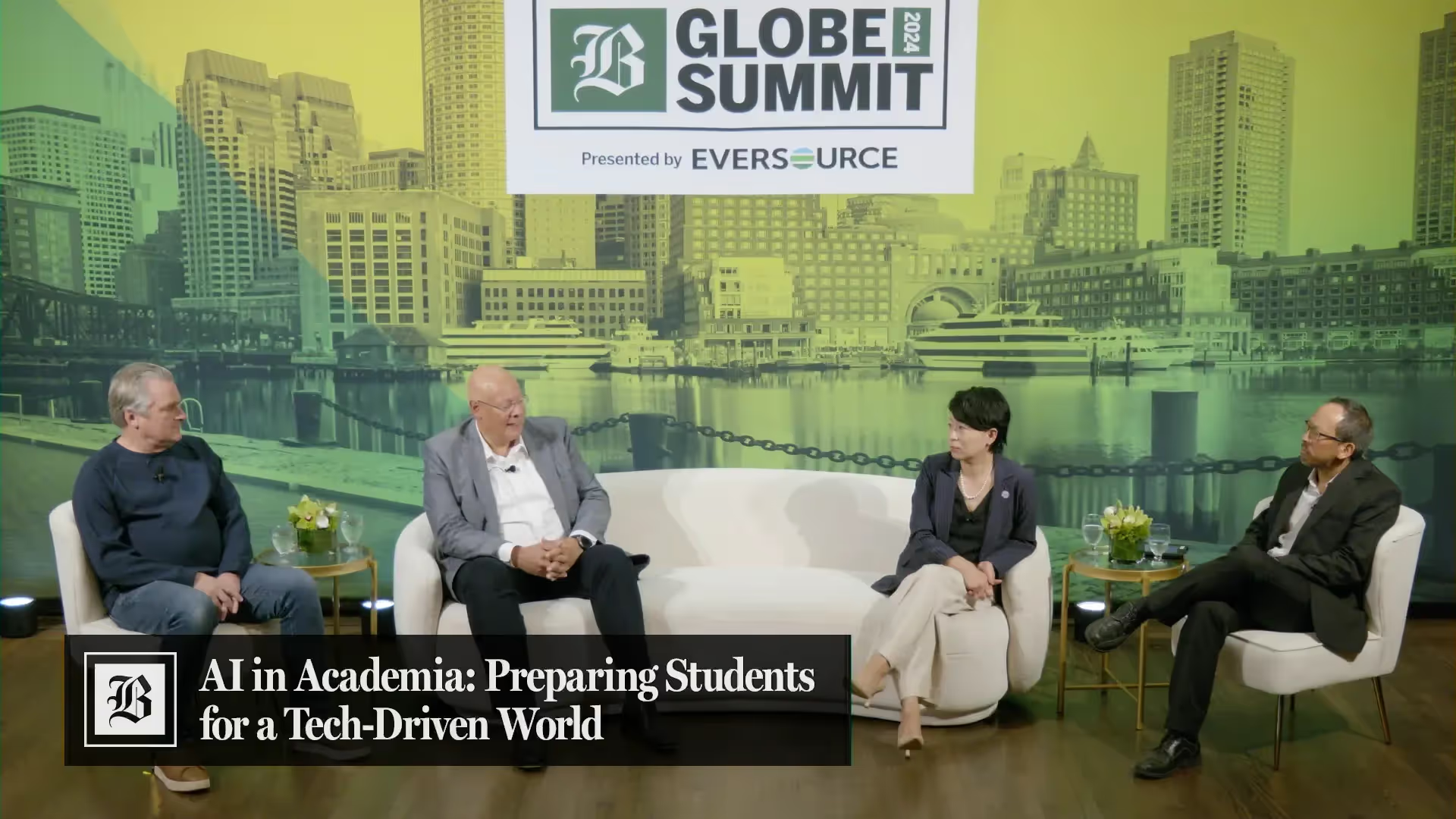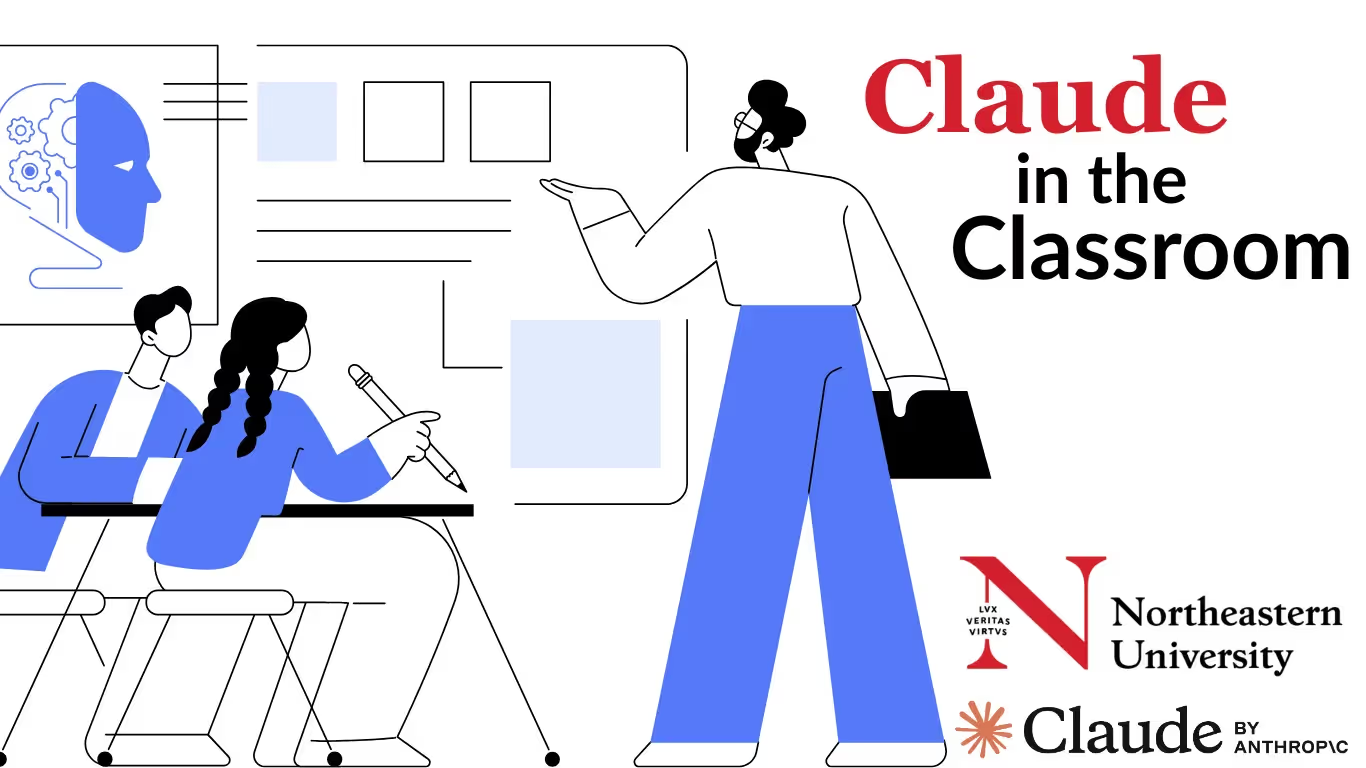Boston Globe Summit Examines AI in Education With Usama Fayyad

The pace of change occasioned by AI is creating major challenges for students and teachers alike. Chief among them is how to integrate new technology into the learning process. But as transformational as AI promises to be for the classroom, it need not be destructive.
To explore how students and educators can benefit from and prepare for the new AI era, the Boston Globe hosted a number of local education experts at Globe Summit 2024—an annual conference of “thought-provoking and actionable discussions” led by Globe journalists. Usama Fayyad, executive director of the Institute for Experiential AI, joined Paul English, a Boston-based entrepreneur and activist, and Grace J. Wang, president of Worcester Polytechnic Institute, in a panel moderated by Greg Huang, business editor at the Boston Globe.
To open, Grace Wong proposed a three-pronged strategy for thinking about AI in education: The first is to provide students with both the fundamentals and the cutting-edge skills necessary to succeed. The second is pedagogical—how does AI alter the learning environment and what kind of infrastructure is needed to support it? And the third is how to prepare students for this future by accentuating and teaching human skills.
Wong’s ideas echo those of Northeastern President Joseph E. Aoun, who credits universities with their unique ability to foster “robot-proof” skills.
All panelists cited the “real world” as an important model for thinking about how AI should function within it. Usama Fayyad, like Northeastern as a whole, has long championed an approach to AI that focuses on real world applications and solutions—the “human in the loop.”
“One of the first things we did [at the Institute for Experiential AI] is establish what we call the AI Solutions Hub,” Fayyad said, “which engages with companies to source data and problems. A lot of the interesting research in the past decade or so has happened in companies, not in universities, because the academics didn't have access to the data and the problems, and we need to fix that.”
This has created some gaps in academia in terms of graduating qualified candidates, Fayyad continued to say. In effect, students have to “unlearn” the bad habits that occur in “sanitized classroom conditions.” In the real world, data cannot so easily be hacked with an algorithm until a satisfactory answer emerges. It’s more complicated than that.

AI is here to stay, and the challenge now is to figure out how it can serve students who are not necessarily working with data and algorithms—K-12 students, for example. Grace Wong offered an example of an AI platform created by WPI faculty that was able to increase the efficacy of learning outcomes for middle school math students.
The discussion also touched on the ethics of AI, the shortfalls of generative AI like ChatGPT, as well as the potential to benefit healthcare education—in particular, the role AI increasingly plays in making more accurate patient diagnoses.
Northeastern University continues to examine the critical ways AI is shaping the future of education. We explored the topic in detail in the September issue of our In The AI Loop newsletter, and on Oct. 9, we will host a workshop on the Future of AI in Health & Life Sciences Education.
To learn more about the educational offerings from the Institute for Experiential AI—from executive training to employee upskilling—meet with one of our AI education experts.

.avif)


